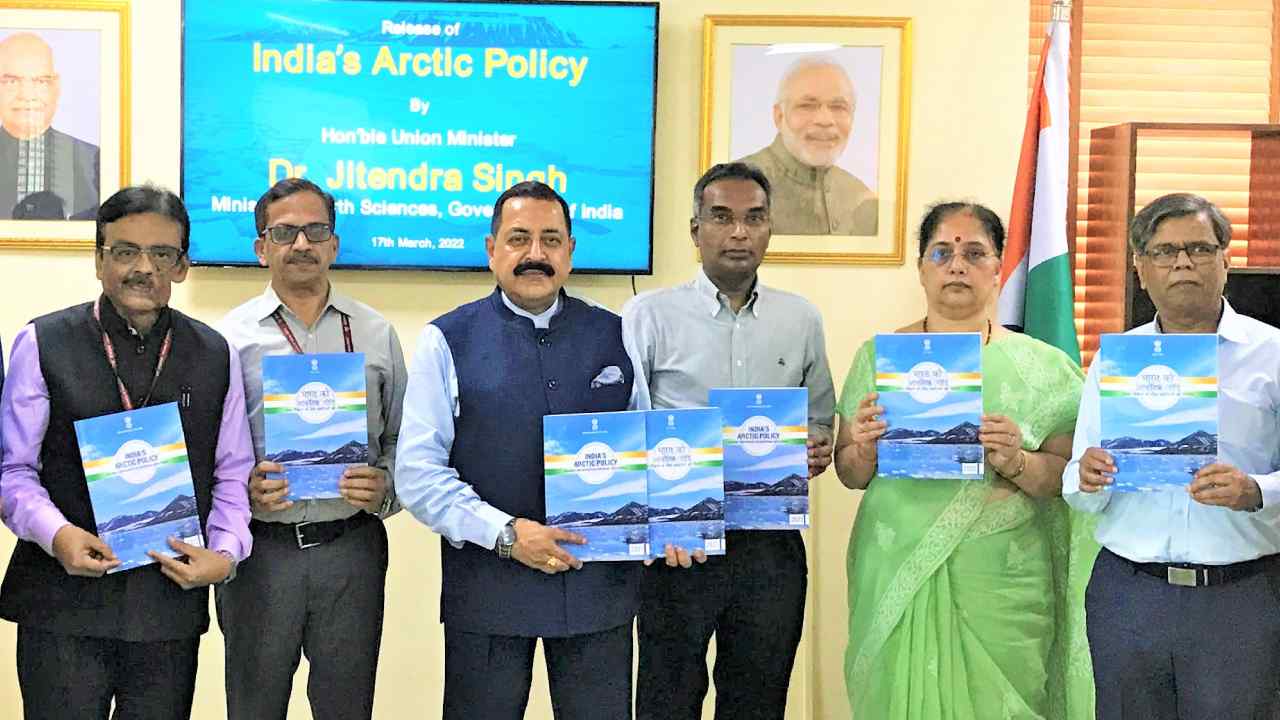India on Thursday released its Arctic Policy, which aims to deepen the country’s partnership with the resource-rich region. The policy, India and the Arctic: Building a Partnership for Sustainable Development, has six pillars – strengthening scientific research and cooperation, climate and environmental protection, economic and human development, transport and connectivity, governance and international cooperation in the Arctic region, and national capacity building.
Earth Sciences Minister Jitendra Singh released the policy.
India is one of the 13 countries having observer status in the Arctic Council. The Council is a high-level intergovernmental forum that addresses issues facing Arctic governments and peoples of the region.
Another step towards seeking sustainable development. “India’s Arctic Policy” released by Ministry of Earth Sciences. This would play an essential role in preparing India for a future where biggest challenges like climate change can be addressed only through collective effort. pic.twitter.com/CnlsiNLpna
— Dr Jitendra Singh (@DrJitendraSingh) March 17, 2022
The region holds immense geopolitical importance, as the Arctic is projected to be ice-free by 2050 and world powers are moving to exploit the region, rich in natural resources.
Under the banner of science and research, the Indian government hopes to build its research capabilities in the region by strengthening existing facilities, such as the Himadri Arctic station in Svalbard, Norway. It also hopes to align Indian research with international Arctic priorities. The policy further lays down plans to deploy space technology to better study the Arctic region.
Besides metals and minerals, the region is also known to have huge oil reserves and is expected to emerge as a key sea transport lane in the future. India maintains that all human activity in the region should be sustainable, responsible, transparent and based on respect for international laws. The Arctic policy aims to strengthen national capabilities and competencies in science and exploration, climate and environmental protection, maritime and economic cooperation with the Arctic region.





























